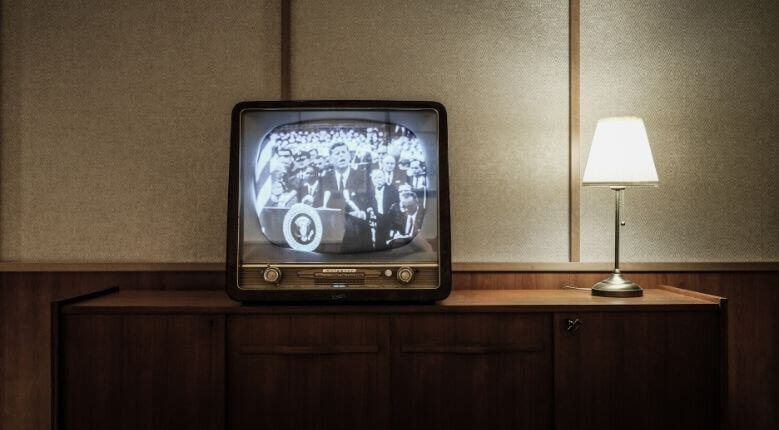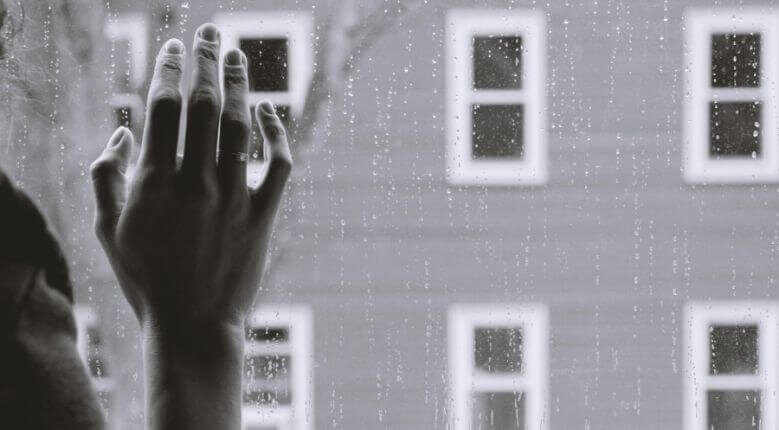One-sided or unrequited love (be it romantic or platonic) is often a theme in fictional stories. It captures our interest because we are hardwired to fall for stories that tap into our rawest emotions. When the protagonist finally gets their love, friendship or even slightest effort reciprocated, it sends us a wave of satisfaction and accomplishment as voyeurs to the character's story. However, unlike fiction, unrequited love in reality is often filled with uncertainty. Even more so if it's a parasocial relationship.
What is a parasocial relationship?
The term ‘parasocial relationships’ or ‘parasocial interactions’ was coined in 1956 when mainstream media started to penetrate almost every household. It is developing feelings of attachment towards people in television and film as if they are friends or people we are able to interact with face-to-face on a regular basis. This is an after-effect of the ‘direct address’ personalities do towards the camera, to evoke a sense of relationship or connection with a viewer through the screen.

(Photo from: Lucrezia Carnelos via Unsplash)
Fast forward to today, psychotherapist Dr. Maria Micha defines it as a “very mild dissociation from reality” where an individual pictures themselves in scenarios with the person they’re directing their strong feelings to, even with the knowledge and lack of expectation of the relationship being two-way. It also usually involves investment of time, money, and effort without the other party being aware of the person’s feelings or existence. But what sets it apart from usual admiration towards a celebrity is the feelings of attachment, romantic or filial, a person has towards their object of affection.
On paper, it looks illogical. It would make you think that it’s impossible or that people who experience parasocial relationships are in dire need of an intervention. However, it's more valid and grounded than you think.
In the case of fan culture
Social media specialist Ysa, 31, shared that while she’s been a fangirl since she was 17, it’s the first time she’s heard of parasocial relationships when tapped for this interview. It’s the same for corporate employee Marj, 32, who’s “experienced this phenomenon” ever since she was in elementary school but have only found out its name through this story. Meanwhile, we also have freelancer Hana*, 24, who has heard of parasocial relationships before when she was searching for a term to rationalise her feelings.

(Photo from: Anthony Delanoix via Unsplash)
Ysa shared that while she’s a huge fan of many artists, she feels the principle of parasocial relationships the most for girl group Perfume, as well as Japanese celebrities Emi Takei and Mone Kamishiraishi. She had the chance to talk to Perfume during the NHK Songs of Tokyo 2020 TV event and was able to thank them and tell them she loves them during the experience. Her bit unfortunately didn’t make it to the final cut when it was aired, but it doesn’t make it less special to her. She describes them as her “happy pills”.
As someone who grew up only with brothers, Ysa sees her attachment with Emi in a very familial manner. Ysa thinks that they will be “great sisters'' with Emi being younger than her. As for actress and singer Mone Kamishiraishi, Ysa describes her feelings for her like that of a “godchild”. She’s incredibly proud of Mone’s achievements — be it in voice acting, singing, or in TV and film — and Ysa feels a wave of shared satisfaction when she hears of Mone’s accomplishments. She runs fan pages for both actresses as one of the many ways to show support for them. She’s also participated in many projects and initiatives related to them.
Marj, meanwhile, said that her admiration for a certain artist has been ongoing for almost half her life and it’s a mix of both romantic and platonic feelings.
“It's like growing up with him — from being a teenager to a full-grown adult to being married and eventually having his own family. I haven’t met him, but it feels like I’ve known him for a long time. He is so relatable in many ways, that I find it really amusing whenever we have similar habits, preferences, or responses to certain situations,” she said.
Being able to revisit this person’s works, be it in music or TV and film, gives Marj a sense of comfort amid the usual mix of chaos and mundanity of everyday life, which makes her feel connected to him. She described this person as “an extension of her own self,” wherein she also feels whatever that person is feeling or going through.

(Photo from: Jamez Picard via Unsplash)
Hana relates to Marj’s situation.“The person I admire is very charming, hardworking, and talented. It’s easy to say that it comes with their job as an entertainer. But there’s just something so captivating about this person that I admired even before I realised what my feelings meant.,” Hana said.
However, as someone who strongly upholds logic and rationality, Hana explained that she’s had a hard time dealing with her situation.
“Honestly, I was scared when I realised that my feelings might be something more than just ‘being a fan,’” she confessed. “I’m a rational person to the point that people know me for being so careful and logical about my decisions. So just imagine how unnerving this is.”
She said that she ended up looking for explanations on the internet as to whether or not she’s “gone crazy” for feeling the way that she does. She was afraid of telling anyone so it was an emotionally draining process of coming into terms with it. She found a little bit of comfort when she found out that parasocial relationships were a thing.
She elaborated her thoughts on her situation, saying: “I totally understand that people might find it odd, that’s why I never talk about it with anyone except for one friend that I absolutely trust. If someone else was in my place and I was on the other side of the story, I might also find this situation intense. I mean, how can you fall in love with someone whose job is exactly that: to make you fall in love with everything about their persona because that’s part of being an entertainer? It’s a formula and I fell for it, sad to admit. I tried to think that it was mere infatuation but I feel the exact same way, even more intensely, for this person much like how I did in previous serious relationships I’ve had in the past. It would be easy if I wasn’t this self-aware.”
Dr. Micha explained that this happens because, to some extent, people who experience parasocial relationships see them as an escape from their own reality. It’s creating a “parallel truth.”
Is there a tendency for parasocial relationships to go wrong?
Should a person start developing delusions about their parasocial relationships to the point where it bends their reality, it can become dangerous, Dr. Micha explained. This goes for stalkers, people who go after the partners or spouses of the person they direct their feelings toward, or those who retaliate when the person they are parasocially related to dismisses their advances. There are even instances of people getting plastic surgery to address their parasocial relationship with a celebrity.
However, these are extreme cases. Ysa, Marj, and Hana all agree that knowing when to draw the line separates healthy parasocial relationships to unhealthy ones.
“I am openly bisexual,” Ysa shared. “However, I am aware that these feelings towards my female idols are platonic. I am deeply in love with them but it’s just purely admiration because of their personalities, talents, and basically, almost everything about them.”
Marj, meanwhile, said: “Yes, to be honest, I also had made-up scenarios in my head with him and me personally knowing each other in an alternate universe — either as friends, co-workers, or lovers. These scenarios have inspired me to write fictional stories years ago.”
However, she clarified that she’s not the type of fan who feels entitled to their admired artist’s life. She understands her boundaries, especially now that the person she’s parasocially attached to is already married.

(Photo from: Kristina Tripkovic via Unsplash)
For Hana, policing her thoughts when she starts to imagine ‘what-ifs’ about the celebrity she has “fallen in love with” has become her coping mechanism. She also said that to lessen the “emotional torture” of having to rationalise her feelings, she realised that it’s no different from having an unrequited love with “a co-worker or a stranger down the street.” The only challenge is having “legions of other people feeling the same as you do when it comes to this person” making the chances of this person reciprocating your feelings next to none. Still, everything about them and what they do somehow “makes you feel loved because it’s part of who they are”.
“As long as you know that what you’re ‘making up in your head’ is just ‘in your head’, everything is fine,” Dr. Micha assured. When the feelings grow stronger to the point that it disrupts your reality and rationality, however, that’s when professional help must come in.
The bittersweet middle ground
It’s safe to say that healthy parasocial relationships are somehow the bittersweet middle ground for people who experience them. There’s the feeling of comfort, constancy, and just the right amount of escapism that’s easy to access whenever we’re in our most vulnerable and there’s no one to turn to. It’s having a shared experience, albeit one-sided, with someone through music or film or literature that we can relate to without being connected personally. And it might be scary considering it might attract judgement from others, but it is real and totally acceptable as long as it’s within the right boundaries.
*An alternate name has been provided for the privacy of the interviewee.
**Interviews were edited for clarity and brevity.
Comments, questions or feedback? Email us at [email protected].





.png)


